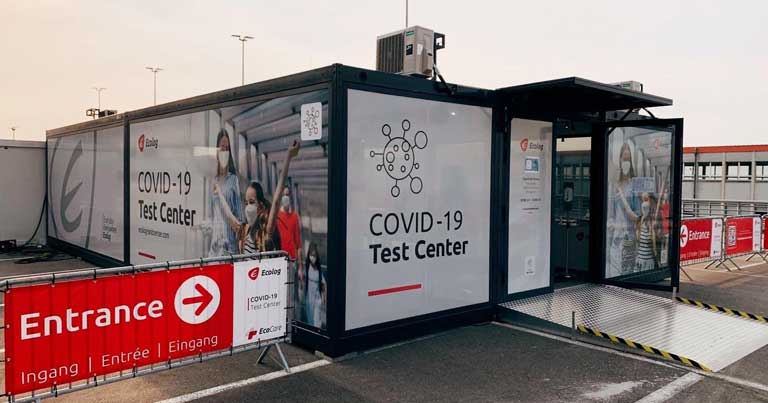
Brussels Airport has opened a new COVID-19 test centre, available for passengers arriving at the airport. Passengers returning from COVID-19 red zones who have completed a Passenger Location Form and received a 16-digit SMS code can perform a PCR (polymerase chain reaction) test free of charge at the test facility.
Arnaud Feist, CEO, Brussels Airport Company, explained: “We took the initiative to put up a test centre at the airport to further strengthen our sanitary measures against COVID-19 and thus contribute to protecting public health. The test results will be rapidly communicated to the passengers. Testing is an essential element to allow the aviation industry, and the economy in general, to gradually get out of the current crisis without compromising the health and safety of the public.”
The test centre is operated by Ecolog as logistics partner, in collaboration with the Eurofins-Lab of Van Poucke. So far, the results are being processed externally, with a mobile lab expected to open in September, so that test can be processed onsite, making the results available faster.
The facility uses PCR tests, which collect a nasal swab sample to determine the presence of the virus. The results will be available within 24 hours. Once the laboratory at Brussels Airport is ready, the rapid test results will be available within 3 hours, while those of the standard test within 9 hours.
The airport also says that the price for testing passengers returning from a red zone will be settled directly between Belgium’s National Institute for Health and Disability Insurance (NIHDI) and the test centre. In case of a voluntary test for departing passengers, the standard PCR test will cost €67, whereas a rapid PCR will cost €135.
The Test Centre is open seven days a week, including on Sundays and holidays, from 3.30 am to midnight. People who wish to get tested, are advised to make an online appointment through the airport’s website to avoid queues. The test results will be sent to the passenger by e-mail and will only be transferred to Sciensano, the Federal Scientific Institute of Public Health in Belgium. The airport operator says that it does not have access to the results.






